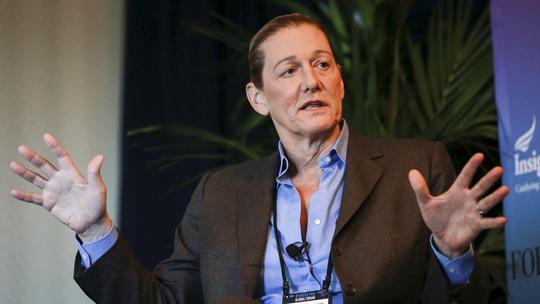
The world witnessed a monumental medical breakthrough when a genetically modified pig heart was successfully transplanted into a human patient earlier this month. And the Maryland biotech that developed that organ just hit another milestone.
Two weeks following the operation, the recipient of that heart is not only still alive, but has normal organ function and even cardiovascular improvement, Silver Spring’s United Therapeutics Corp. (NASDAQ: UTHR) said Friday. That’s according to surgeons from the University of Maryland School of Medicine, where the Jan. 7 procedure was performed.
The patient, David Bennett, was the first recipient of a heart developed by Blacksburg, Virginia’s Revivicor Inc., a subsidiary of UT. It’s a massive step in the local company’s long-term effort to solve the organ shortage crisis through xenotransplantation, or transplanting organs between species.
It comes as United Therapeutics puts its eggs in multiple baskets on the organ development front. The biotech’s Lung Bioengineering subsidiary has saved more than 200 human donor lungs that would’ve otherwise been disposed and were ultimately transplanted successfully, through work at UT’s Silver Spring facility and Mayo Clinic’s Florida campus. The company also delivered the first transplanted lung to Toronto General Hospital via electric drone, “demonstrating the feasibility of UT’s goal to deliver its transplantable organs with zero carbon footprint aircraft,” it said Friday.
“It is enormously gratifying to see these xenotransplantation breakthroughs achieved after working on this for over 20 years,” United Therapeutics Chairperson and CEO Martine Rothblatt said in a statement. “At UT, we are relentlessly pursuing our goal of producing an unlimited supply of transplantable organs from xenotransplantation, regenerative medicine, and 3D bioprinting technology.” The company expects breakthroughs in each area this year, as it builds a large clinical-quality organ facility to support clinical trials for its UHeart and UThymoKidney programs.
United Therapeutics has spent years laying groundwork to break into xenotransplantation to help boost the organ supply for people in need of transplants. The heart transplant followed the September transplant of a pig kidney into a brain-dead patient whose family had granted consent for the experiment at New York University Langone Health.
Both the heart and kidney surgeries came after the Food and Drug Administration granted one-time emergency use authorizations. UT is still working toward getting regulatory approval to be able to transplant the pig organs into humans without requiring an emergency authorization each time. That can't happen until the company completes clinical trials, which it's aiming to start soon. The Food and Drug Administration already approved in December 2020 the genetically modified pigs — which Revivicor grows — for human food and as a potential source for biomedical use.
Less than a week after the recent heart procedure, news about the patient’s past sent shockwaves through the headlines: Bennett had been convicted in 1988 of stabbing a man, who became paralyzed and died years later at nearly 41 years old. The revelation spurred an ethics debate about whether he should have received the pig’s heart.



